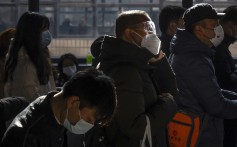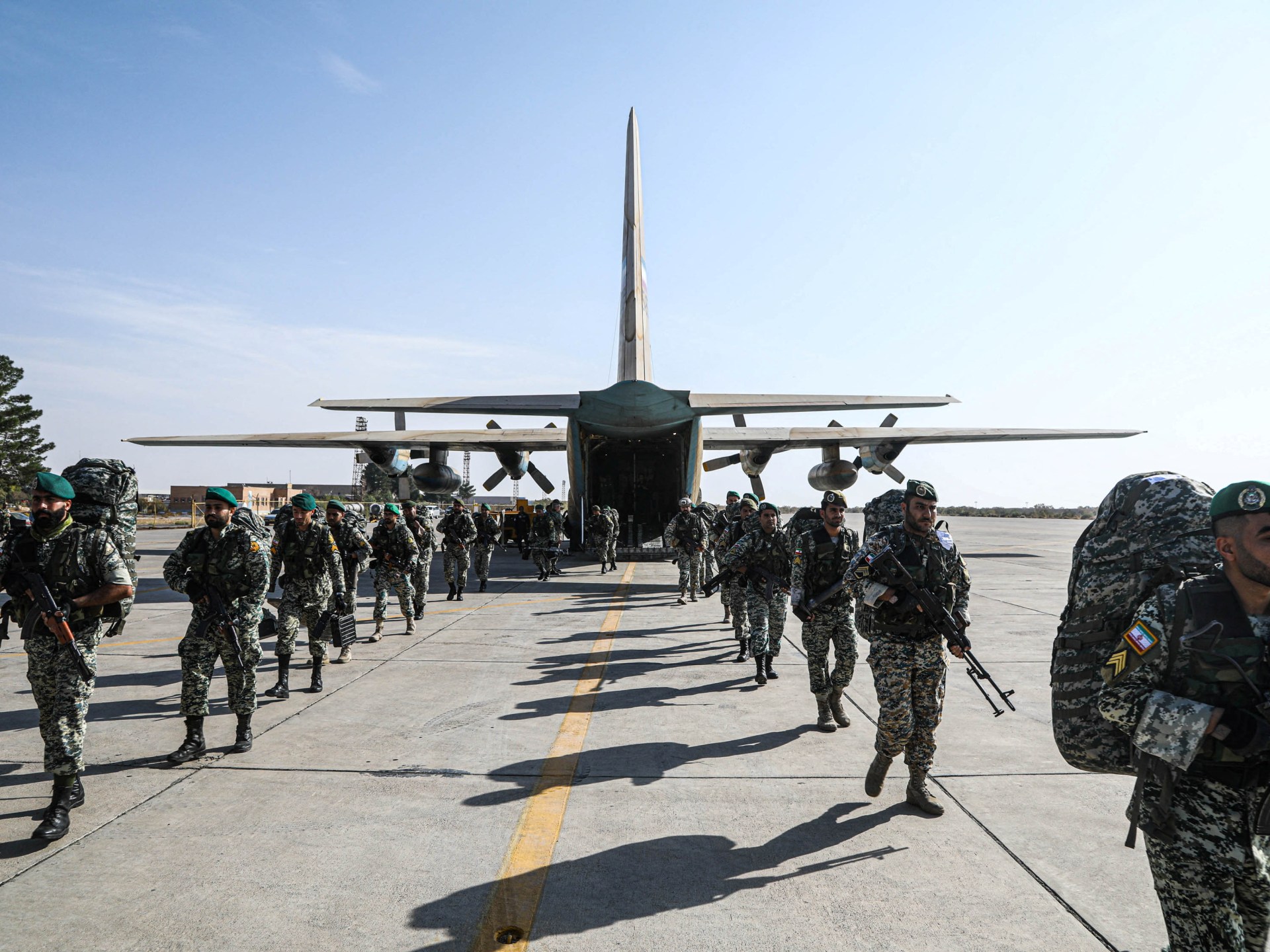Media
China targets foreign and ‘unauthorised’ media in extended crackdown
|
|
Beijing will extend a crackdown on journalists and news outlets operating unregistered on the Chinese mainland, its latest effort to “clean up” online content and unsanctioned information.
The campaign – which began in 2022 and whose targets include overseas media and “unauthorised internet media” – has “made new progress” and the Central Propaganda Department will continue with it this year, state news agency Xinhua reported on Wednesday.
China has an extensive and sophisticated system in place to control online information, and the government has also imposed strict licensing requirements for reporting and broadcasting.
As part of the latest campaign, Beijing will crack down on those who blackmail businesses with news reports, pretend to be reporters, and release “fake news” – especially content related to the ruling Communist Party and government policies, the report said.
Media outlets will be under scrutiny and those that publish “fake news”, engage in illegal activities or that were established without authorisation will be shut down.
Overseas outlets will be a focus of the campaign, and according to Xinhua, “organisations and media personnel that illegally conduct activities in the mainland in the name of foreign media” will be punished.
“In the past year, we have punished … commercial websites, internet organisations and public accounts that illegally reported news, cleaned up fake media, and punished organisations and media personnel that published news for profit,” the report said.
“We have effectively maintained order in news dissemination, actively safeguarded the rights and interests of the public, and safeguarded our ideological security.”

The campaign is the latest push to clean up content on the Chinese internet, especially content from foreign media and social media. The government has also moved to tighten controls in the past few years amid a rise in citizen journalism.
Self-employed reporters cannot be accredited by the National Press and Publication Administration, which administers tests and grants the press credentials required to work as a journalist in China.
Unaccredited reporters can face legal repercussions and possibly even criminal charges. Citizen journalist Zhang Zhan was sentenced to four years in prison in Shanghai at the end of 2020 for her reporting on the Covid-19 outbreak in Wuhan. She was charged with “picking quarrels and provoking trouble” – a catch-all term often used in China to silence dissent.
There have also been cases of businesses being blackmailed by public accounts on WeChat with the threat of “negative reports”. In one case, the account Xian Land was banned from the social media platform over accusations it had blackmailed property developers, according to a May 2021 statement from the Shaanxi provincial cyberspace administration.





Media
DJT Stock Rises. Trump Media CEO Alleges Potential Market Manipulation. – Barron's
[unable to retrieve full-text content]
DJT Stock Rises. Trump Media CEO Alleges Potential Market Manipulation. Barron’s





Source link
Media
DJT Stock Rises. Trump Media CEO Alleges Potential Market Manipulation. – Barron's
[unable to retrieve full-text content]
DJT Stock Rises. Trump Media CEO Alleges Potential Market Manipulation. Barron’s





Source link
Media
Three drones downed after explosions heard in Iran’s Isfahan: State media – Al Jazeera English


Iran’s air defences have brought down three small drones over the central city of Isfahan, state media reported, hours after United States broadcasters, quoting senior US officials, said Israeli missiles had hit an Iranian site.
Iranian state television reported explosions in Isfahan as air defences were activated and flights across several areas, including the capital, Tehran, and Isfahan, were suspended.
Airspace was reopened about four and a half hours after the incident and there were no reports of casualties.
Second Brigadier General Siavash Mihandoust, the top military official in Isfahan, told state media that air defence batteries hit “a suspicious object” and there was no damage.
ABC News and CBS News had reported earlier that Israel had carried out a military operation in Iran.
Italy’s Foreign Minister Antonio Tajani said the US told the Group of Seven (G7) foreign ministers that it had been “informed at the last minute” by Israel about an attack on Iran.
“But there was no sharing of the attack by the US. It was a mere information,” Tajani told reporters in Capri, Italy, where the G7 ministers met.
However, US Secretary of State Antony Blinken refused to confirm reports about the Israeli attack, during a news conference in Capri.
“I’m not going to speak to that, except to say that the United States has not been involved in any offensive operation,” Blinken said.
The top US diplomat said the G7’s focus is on de-escalation. Asked to describe the current US-Israel relationship, Blinken noted that Israel makes its own decisions, but the US is committed to its security.
Iranian media said no strikes were launched on Iran from outside the country, and the attack was believed to have been carried out using small quadcopters that would have to have been launched from inside Iran.
Reporting from Tehran, Al Jazeera’s Dorsa Jabbari said Iranian media were downplaying the incident.
“The location in Isfahan province is an Iranian military airbase that belongs to the country’s army, and not the Revolutionary Guards [Islamic Revolutionary Guard Corps, IRGC]. I think it’s important to highlight that,” she said. “This base houses multiple squadrons of F-14 Tomcat fighter aircraft.”
“We also understand that the air defence systems over the city of Tabriz in the northwestern part of Iran were also activated,” Jabbari reported.
A military factory belonging to the Iranian army in Isfahan was attacked by multiple quadcopters in January 2023, failing to damage the facility that was protected by air defence batteries and mesh wiring on its roof to counter small unmanned aerial vehicles.
Iran blamed Israel for that attack and arrested four people, executing one of them in January 2024, for operating on behalf of Mossad, the Israeli spy agency.
Israel had promised to respond after Iran launched a barrage of drones and missiles on the country on April 13, after a suspected Israeli attack on Iran’s consulate compound in Damascus killed 16 people, including two IRGC senior generals.
Governments around the world urged restraint and a push to de-escalate tensions across the region.
Isfahan is considered a strategically important city and one that is host to several important sites, including military research and development facilities, as well as bases. The nearby city of Natanz is the location of one of Iran’s nuclear enrichment sites.
In a speech in Damghan, in central Iran, Iran’s President Ebrahim Raisi made no mention of Isfahan but praised the Iranian attacks on Israel, saying they gave the country strength and unity.
Kioumars Heydari, the commander-in-chief of the ground forces of the Iranian army, said Iran remains vigilant to confront any other potential aerial threats.
“If suspicious flying objects appear in the sky of the country, they will be targeted by our powerful air defence,” he was quoted as saying by the state-run IRNA news agency ahead of Friday prayers in Tehran.
‘No damage’ to nuclear facilities
The International Atomic Energy Agency (IAEA) confirmed that “there is no damage” to Iranian nuclear sites as the United Nations nuclear watchdog’s chief Rafael Grossi called for restraint and said nuclear facilities should never be targeted in military conflicts.
IAEA can confirm that there is no damage to #Iran’s nuclear sites. DG @rafaelmgrossi continues to call for extreme restraint from everybody and reiterates that nuclear facilities should never be a target in military conflicts. IAEA is monitoring the situation very closely. pic.twitter.com/4F7pAlNjWM
— IAEA – International Atomic Energy Agency ⚛️ (@iaeaorg) April 19, 2024
The reported attack “was far more limited than many expected”, Iranian arms control expert Ali Ahmadi told Al Jazeera, adding that Israel “has much more limitations in its operational range” than many think.
“Certainly, after Iran’s retaliatory capacity was criticised, it benefits from advertising how ineffective what Israel did was as well. Iran also needs to prepare the public for a much softer reaction than it has talked about in the last couple of days,” he pointed out.
Ahmadi said that prior to today’s incident, Iran was preparing several options for a massive retaliation, including getting allies involved.
But considering the limited scope and impact of the alleged attack, which he described as a “security sabotage” rather than a “military assault”, it would be a mistake to carry out a significant response, he stressed.
There were also reports of explosions in Iraq and Syria, with Iranian state media saying there were explosions at multiple military-linked sites in Syria.
Syria’s official news agency SANA quoted a military source as saying that missile strikes in the early hours of the morning caused material damage to air defence sites in the country’s southern region. The report did not specify the exact location and the extent of the damage but blamed Israel.
The US and a number of European countries had been calling on Israel not to respond to Iran’s attack.
On Thursday, UN Secretary-General Antonio Guterres painted a dark picture of the situation in the Middle East, warning that spiralling tensions over Israel’s war on Gaza and Iran’s attack on Israel could descend into a “full-scale regional conflict”.
“The Middle East is on a precipice. Recent days have seen a perilous escalation – in words and deeds,” Guterres told the UN Security Council.
“One miscalculation, one miscommunication, one mistake, could lead to the unthinkable – a full-scale regional conflict that would be devastating for all involved,” he said, calling on all parties to exercise “maximum restraint”.
-



 Investment24 hours ago
Investment24 hours agoUK Mulls New Curbs on Outbound Investment Over Security Risks – BNN Bloomberg
-



 Sports22 hours ago
Sports22 hours agoAuston Matthews denied 70th goal as depleted Leafs lose last regular-season game – Toronto Sun
-
Media2 hours ago
DJT Stock Rises. Trump Media CEO Alleges Potential Market Manipulation. – Barron's
-
Business21 hours ago
BC short-term rental rules take effect May 1 – CityNews Vancouver
-
Media5 hours ago
Trump Media alerts Nasdaq to potential market manipulation from 'naked' short selling of DJT stock – CNBC
-
Art20 hours ago
Collection of First Nations art stolen from Gordon Head home – Times Colonist
-



 Investment21 hours ago
Investment21 hours agoBenjamin Bergen: Why would anyone invest in Canada now? – National Post
-



 Tech23 hours ago
Tech23 hours agoSave $700 Off This 4K Projector at Amazon While You Still Can – CNET





